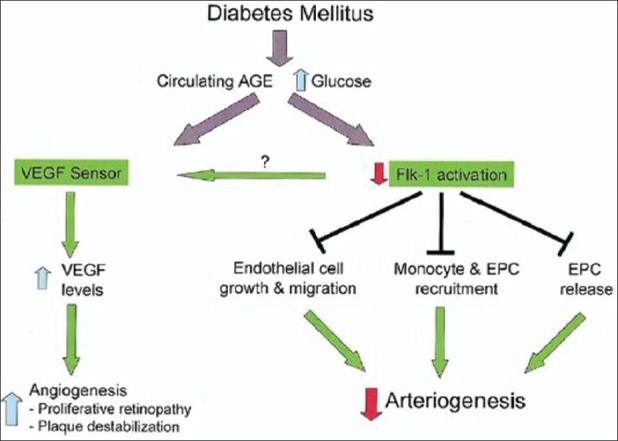Figure 2.

Graphical representation of the proposed paradigm of neovascularization abnormalities in diabetes mellitus. Defective VEGF signaling results in impaired Flk-1 activation that affects endothelial cell growth and migration, monocyte and endothelial progenitor cell (EPC) recruitment, and EPC release by the bone marrow. As a result, arteriogenesis is impaired. At the same time, decreased VEGF sensing, due to impaired Flk-1 activation, results in increased serum VEGF levels that lead to pathologic angiogenesis (retina, atheroma). AGE: advanced glycosylated end-products.
